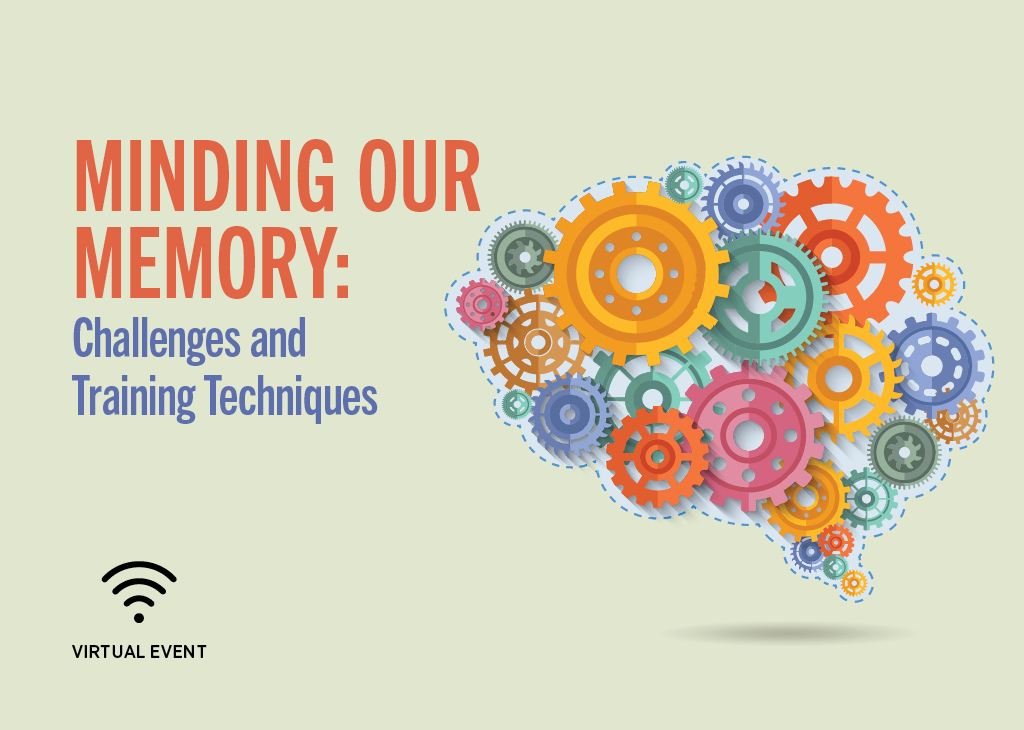Dr. Ercoli details groundbreaking research on lifestyle interventions to improve brain function – an important foundation of Belmont Village Senior Living Memory-related programming
Dr. Linda Ercoli, director of the Longevity Center at the University of California Los Angeles (UCLA), recently discussed challenges associated with understanding memory and aging, as well as training techniques for promoting brain health during Belmont Village Senior Living’s recent webinar, “Minding Our Memory: Challenges and Training Techniques.” When implemented properly, Dr. Ercoli’s groundbreaking research and training techniques can improve the cognition of seniors by compensating for their cognitive weaknesses. Much like Belmont Village’s award-winning memory care programs, Dr. Ercoli’s findings are especially relevant and beneficial to seniors who have been socially isolated during the pandemic, have Mild Cognitive Impairment, or simply want to maintain brain health.
“Lifestyle has a profound impact on brain health. In addition to clinically studied techniques for improving the cognition, factors such as diet, physical fitness, and socialization are all critically important factors of Whole Brain Fitness,” says Patricia Will, founder and CEO of Belmont Village Senior Living. “We’ve had a long and robust partnership with Dr. Ercoli and UCLA. What we’ve learned from working alongside her and other experts not only informs our programming, but also helps to enrich the lives of our residents, and all those who embrace the idea of living better, longer.”
In the webinar, Dr. Ercoli discussed the nature of memory loss and explained that mild memory challenges (like forgetting a name, word, or an item at the store) are a normal part of aging. Declines in cognitive function and the deterioration of brain structure often occur in seniors without Alzheimer’s symptoms – even in high functioning seniors known as “super-agers.” There are certain vulnerabilities in the brain that are affected by aging – namely, the retention of new knowledge and mental speed, also known as “fluid intelligence.”
“I like to think about brain health as a lot like joint health. We all know that our knee at the age of 60 is not the same knee that we had at 20-25. Our brains are not always as flexible, and this is often exhibited in seniors who have difficulties with multitasking and/or finding alternatives when something doesn’t work out. Everyone changes at a different rate, but the difference in how quickly one’s memory changes depends on how well individuals take care of themselves. That’s where cognitive enhancement training comes in— it helps compensate for problems and keep people sharp,” says Dr. Ercoli.
Cognitive enhancement, or “memory interventions,” are designed to promote independence in seniors and improve their quality of life. During the webinar, Dr. Ercoli detailed the following types of training and lifestyle improvements that promote cognitive health:
- Mnemonics: memory-focused exercises that involve visualization, forming images, and use cues that can help compensate for cognitive weakness. She referred to one such technique, “Method of Loci,” which forms associations and uses storytelling to help individuals remember things like grocery lists.
- Cognitive training that involves executive functions like attention, processing speed and reasoning, such as the N Back Test (found easily and freely on the internet), which can actually improve cognition.
- Reducing stress through mindful activities
- Stimulating activities, such as sudoku puzzles and attending lectures, that challenge and engage seniors. Dr. Ercoli stressed the importance of remaining curious and engaging in life-long learning.
- Leading a healthy and active lifestyle to reduce cardiac risk
- Prioritizing socialization, either in-person or over the phone or video, for those whose brain and overall health have been affected by isolation. Being part of a senior living community, like Belmont Village, and getting involved in activities and programming is vital for cognitive health.
Belmont Village utilizes the findings of Dr. Ercoli and other best in class research partners for the remediation of cognitive difficulties associated with aging and dementia. Belmont Village has developed programs and techniques to keep residents engaged in many of the mentally and socially stimulating activities that help foster and maintain wisdom. Such programs include tai chi, health-focused and research-based programming like Circle of Friends, a comprehensive therapeutic program to specifically address the needs and abilities of our residents with Mild Cognitive Impairment (MCI) and early-stage memory loss. Mind-Body Awareness is a holistic program that incorporates specific mental and physical workouts, creative and spiritual activities, and brain-friendly foods. These beneficial programs are encompassed in Belmont Village’s proprietary approach to Whole Brain Fitness.
“COVID-19 was isolating, and those living alone at home encountered bigger challenges with isolation than those living in community environments. I applaud Belmont Village for its focus on bringing people together, offering a high quality of life, and the ways in which it both programmatically and organically offers many cognitive training tools. Thank you for all you do for all your residents and for the community at large,” adds Dr. Ercoli.
